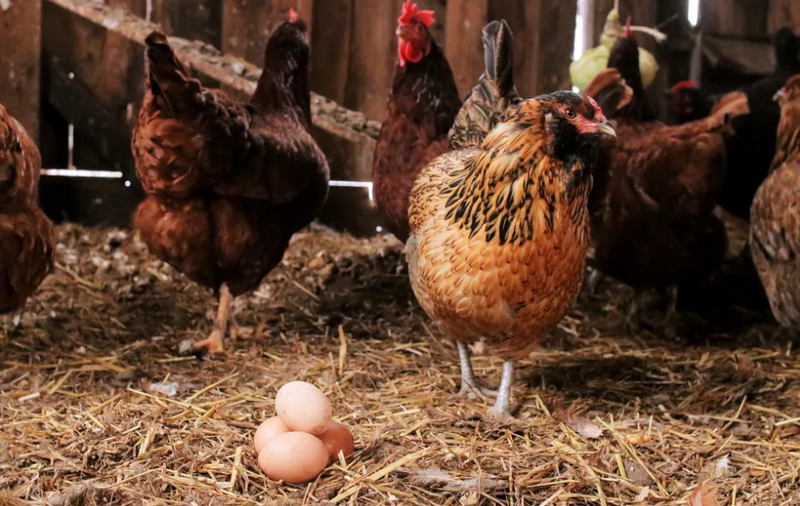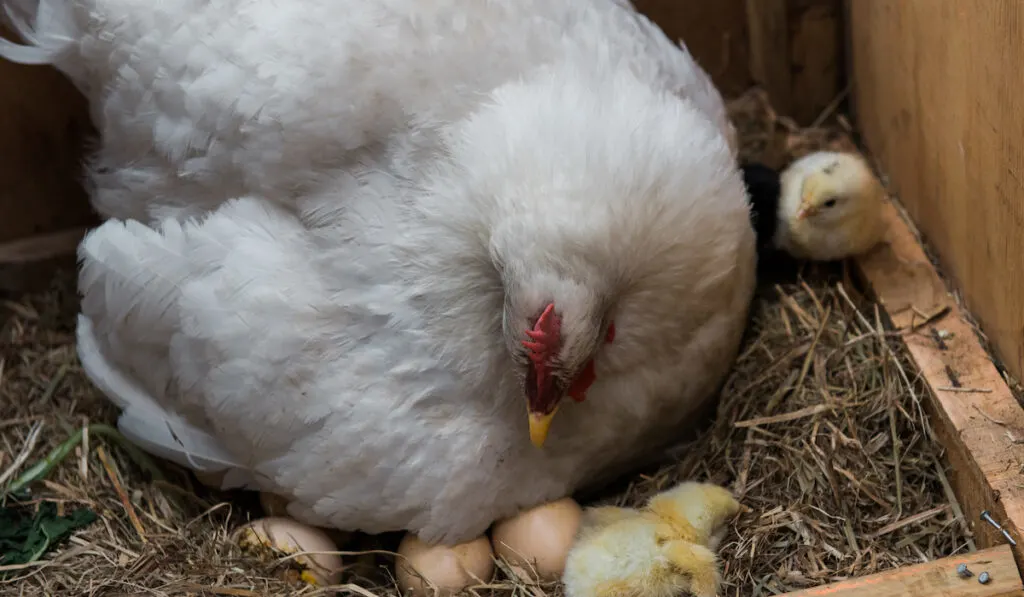Do Hens Produce Eggs Without A Rooster: A Comprehensive Guide
Have you ever wondered if hens can lay eggs without a rooster hanging around? Well, the answer is simpler than you think. It’s a common misconception that hens need roosters to produce eggs, but here’s the deal: hens are nature’s egg-making machines, and they don’t need a rooster to do their thing. Whether you’re raising backyard chickens or just curious about how it all works, this guide will break it down for you in a way that’s easy to understand. So, let’s dive in!
Many folks out there are confused about the role of roosters in egg production. It’s like asking if your toaster needs a chef to make toast. While roosters play an important part in fertilizing eggs, hens are fully capable of laying eggs without them. In fact, most of the eggs you find at the grocery store are unfertilized, meaning no rooster was involved in the process. So, if you’re thinking about starting a small flock, don’t worry—your hens can still do their job without a rooster around.
This guide is here to clear up any confusion and give you all the juicy details about how hens produce eggs without a rooster. From the science behind egg-laying to tips for keeping your hens happy and healthy, we’ve got you covered. Whether you’re a seasoned chicken enthusiast or just dipping your toes into the world of backyard farming, this article is packed with useful info that you won’t want to miss. Let’s get started!
Read also:Kyra Reba Rising Star In The Entertainment World
Understanding the Basics of Egg Production
Before we dive deep into the specifics, let’s talk about the basics of how hens produce eggs. It’s like a mini science lesson, but don’t worry—we’ll keep it fun and straightforward. Hens have a built-in system for creating eggs, and it’s pretty impressive when you think about it. Every hen has two ovaries, but only one is fully functional. This ovary releases yolk-like structures, which travel through the oviduct and eventually become eggs.
Here’s the kicker: the presence of a rooster doesn’t affect the hen’s ability to lay eggs. Roosters come into play only if you want fertilized eggs, which can develop into baby chicks. But if you’re just looking for eggs to eat, your hens can handle it all on their own. The process is natural and happens regularly, usually about once every 24 to 26 hours.
What Happens Inside a Hen’s Body?
Let’s break it down step by step. When a hen’s ovary releases a yolk, it travels through the oviduct, where different layers are added to form the egg. The albumen (egg white), shell membranes, and finally the hard outer shell are all added along the way. This entire process takes about 25 hours, and voila—you’ve got an egg ready to pop out!
Now, here’s the important part: fertilization only happens if a rooster mates with the hen. If no rooster is around, the egg will remain unfertilized. Most commercial eggs are unfertilized, which means they won’t develop into chicks. But don’t worry—unfertilized eggs are just as nutritious and delicious as their fertilized counterparts.
The Role of Roosters in Egg Production
So, what exactly does a rooster do? Well, roosters are like the protectors of the flock. They keep an eye out for predators and make sure the hens are safe. But when it comes to egg production, their main job is fertilization. If a rooster mates with a hen, the sperm can fertilize the egg as it forms in the oviduct. This fertilized egg has the potential to develop into a chick if incubated properly.
But here’s the thing: most people raising backyard chickens or buying eggs from the store don’t need fertilized eggs. In fact, unfertilized eggs are often preferred because they’re easier to store and consume. So, unless you’re planning to expand your flock, a rooster isn’t strictly necessary.
Read also:Andy Griffiths Age A Comprehensive Look At The Life And Legacy Of A Comedy Legend
Do You Need a Rooster for Egg-Laying?
To put it simply, no, you don’t need a rooster for hens to lay eggs. Hens will lay eggs regularly, whether or not a rooster is present. The only difference is that with a rooster, some of the eggs might be fertilized. But for most people, unfertilized eggs are perfectly fine. Plus, having a rooster can sometimes cause more trouble than it’s worth. Roosters can be noisy and aggressive, which might not be ideal for backyard chicken keepers.
Why Do Hens Lay Unfertilized Eggs?
Now that we’ve established that hens can lay eggs without a rooster, let’s talk about why they do it. It’s all about biology. Hens are wired to lay eggs as part of their natural reproductive cycle. Even without a rooster, their bodies continue to produce eggs because that’s what they’re built to do. Think of it like a monthly cycle for humans—it happens whether or not reproduction is involved.
Unfertilized eggs are essentially the hen’s way of practicing for the future. If a rooster ever comes along, she’ll be ready to produce fertilized eggs. But in the meantime, she’ll keep laying unfertilized eggs, which are just as nutritious and tasty as any other egg.
How Often Do Hens Lay Eggs?
The frequency of egg-laying depends on several factors, including the hen’s breed, age, and health. On average, most hens will lay about one egg every 24 to 26 hours. Some high-producing breeds, like the White Leghorn, can lay up to 300 eggs per year! However, as hens age, their egg production tends to slow down. Stress, poor nutrition, and environmental factors can also affect how often a hen lays eggs.
Common Misconceptions About Egg Production
There are a lot of myths floating around about how hens produce eggs. Some people think that hens need a rooster to lay eggs, while others believe that all eggs are fertilized. Let’s clear up some of these misconceptions:
- Hens Need Roosters to Lay Eggs: Nope! Hens can lay eggs without a rooster. The only difference is that without a rooster, the eggs won’t be fertilized.
- All Eggs Are Fertilized: Not true! Most eggs you buy at the store are unfertilized. Unless a rooster has mated with the hen, the eggs won’t be fertilized.
- Hens Only Lay Eggs During Certain Seasons: While some hens may lay fewer eggs during the winter due to shorter daylight hours, they can still lay eggs year-round if provided with proper lighting and care.
Why Do These Misconceptions Exist?
Many of these myths stem from a lack of understanding about how chickens work. People see roosters in flocks and assume they’re necessary for egg production. But the truth is, hens are perfectly capable of laying eggs on their own. It’s also worth noting that commercial egg farms don’t usually keep roosters because they’re not needed for egg production.
Tips for Maximizing Egg Production
If you’re raising backyard chickens, there are a few things you can do to help your hens lay more eggs:
- Provide Proper Nutrition: Make sure your hens have access to a balanced diet that includes plenty of protein and calcium. This will help them produce strong, healthy eggs.
- Ensure Adequate Lighting: Hens need about 14 to 16 hours of light per day to lay eggs consistently. If you live in an area with short winter days, consider using artificial lighting to supplement natural sunlight.
- Keep Stress Levels Low: Stress can affect a hen’s egg production. Make sure your chickens have a safe, comfortable environment with plenty of space to roam.
- Regular Health Checkups: Keep an eye on your hens’ health and address any issues promptly. Healthy hens are more likely to lay eggs consistently.
What Happens If a Hen Stops Laying Eggs?
If a hen stops laying eggs, it could be due to a variety of reasons. Aging, molting, stress, or health issues can all affect egg production. If you notice a sudden drop in egg-laying, it’s a good idea to investigate further. Check your hen’s diet, living conditions, and overall health to see if there’s anything you can improve.
The Nutritional Value of Eggs
Whether they’re fertilized or unfertilized, eggs are packed with nutrients. They’re a great source of protein, vitamins, and minerals. In fact, eggs are often referred to as “nature’s multivitamin” because of their impressive nutritional profile. Here are some of the key nutrients found in eggs:
- Protein: Eggs are a high-quality source of protein, which is essential for building and repairing tissues.
- Vitamins: Eggs contain vitamins A, D, E, and B12, which are important for maintaining good health.
- Minerals: Eggs are rich in minerals like iron, zinc, and selenium, which support immune function and overall well-being.
Are Unfertilized Eggs as Nutritious as Fertilized Eggs?
Yes, unfertilized eggs are just as nutritious as fertilized eggs. The only difference is that fertilized eggs have the potential to develop into chicks if incubated properly. But from a nutritional standpoint, both types of eggs are equally beneficial. So, whether you’re eating store-bought eggs or fresh eggs from your backyard flock, you’re getting a healthy dose of nutrients.
Environmental Factors Affecting Egg Production
Several environmental factors can influence how often a hen lays eggs. These include:
- Daylight Hours: Hens need adequate light to lay eggs consistently. During the winter months, when daylight hours are shorter, egg production may decrease.
- Temperature: Extreme temperatures can affect a hen’s egg-laying ability. Make sure your chickens have a comfortable, climate-controlled environment.
- Crowding: Overcrowding can cause stress, which may lead to a decrease in egg production. Provide your hens with enough space to move around freely.
How Can You Optimize Your Hen’s Environment?
To ensure your hens are laying eggs at their full potential, focus on creating a comfortable, stress-free environment. This includes providing proper lighting, maintaining a consistent temperature, and giving your hens enough space to roam. Additionally, make sure they have access to fresh water and a nutritious diet. Happy hens are more likely to lay eggs consistently.
Conclusion: Do Hens Produce Eggs Without a Rooster?
In a nutshell, yes, hens can and do produce eggs without a rooster. The presence of a rooster only affects whether the eggs are fertilized or not. For most people, unfertilized eggs are perfectly fine and don’t require the hassle of keeping a rooster around. By understanding the basics of egg production and providing your hens with the right care, you can enjoy fresh, nutritious eggs all year round.
So, what’s next? If you’re thinking about starting a backyard flock, now’s the time to do it. With a little knowledge and some TLC, you can enjoy the satisfaction of raising your own chickens and harvesting fresh eggs. And who knows? You might even discover a new passion for chicken keeping along the way. So, what are you waiting for? Get out there and start your egg-laying adventure today!
Feel free to leave a comment or share this article with your friends. And if you’re looking for more tips on raising chickens, be sure to check out our other articles. Happy farming!
Table of Contents
- Understanding the Basics of Egg Production
- The Role of Roosters in Egg Production
- Why Do Hens Lay Unfertilized Eggs?
- Common Misconceptions About Egg Production
- Tips for Maximizing Egg Production
- The Nutritional Value of Eggs
- Environmental Factors Affecting Egg Production
- Conclusion: Do Hens Produce Eggs Without a Rooster?
Article Recommendations


